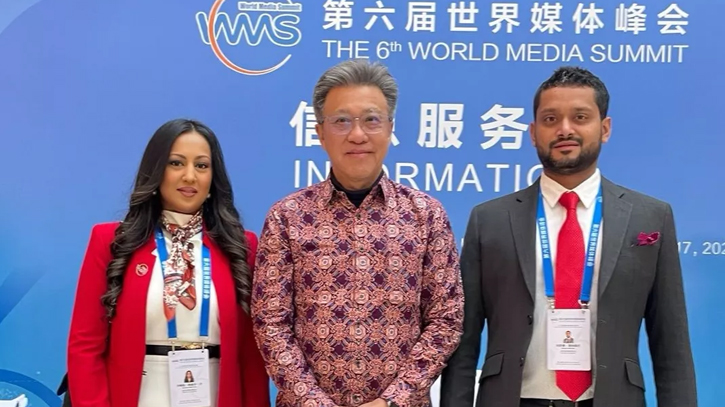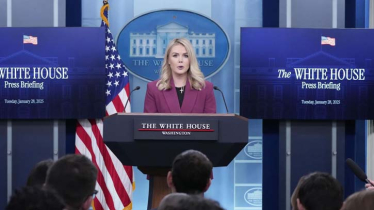
Photo : Collected
The 6th World Media Summit officially opened on October 14, drawing over 500 representatives from 208 media organizations, government bodies, and international institutions across 106 countries. The summit, centered on the theme “AI and Media Transformation,” is co-hosted by Xinhua News Agency and the People's Government of Xinjiang.
The summit brings together key voices from the global media industry, including representatives from United Nations agencies and international organizations, to explore the profound impact artificial intelligence is having on the rapidly evolving media landscape.
At the opening session on Monday, Fu Hua, President of Xinhua News Agency, highlighted Xinhua’s leadership in media AI technology, citing the agency’s development of AI tools that have increased efficiency by 70%.
Participating at the Summit, Nahar Khan, Executive Editor of United News of Bangladesh (UNB), emphasized the critical role of AI in shaping the future of media. “As we stand at the crossroads of this transformation, it’s essential to consider how AI is reshaping the global media landscape—and how Bangladesh can evolve within it,” Khan remarked. She highlighted the importance of transnational collaboration and innovation, adding, “The World Media Summit provides a platform to have exchanges in areas of news and information sharing, cultural collaborations, technology transfer, and joint coverage and initiatives in an increasingly interconnected world.”
Masud Jamil Khan, Deputy Managing Director of Cosmos Group, attending the summit, said, “I am honored to be part of the World Media Summit and extend my thanks to UNB's partner, Xinhua, for organizing such a pivotal event that brings together voices from all continents. China plays a crucial role in the advancement of AI technology, and I believe Bangladesh and China can work closely together to drive progress and innovation in this field.”
Hosted by Yuan Bingzhong, Vice President of Xinhua News Agency, the opening session of the 6th World Media Summit featured speeches by Ma Xingrui, Member of the Political Bureau of the CPC Central Committee and Secretary of the CPC Xinjiang Uyghur Autonomous Regional Committee; Chen Wenjun, Deputy Secretary-General of the Publicity Department of the CPC Central Committee; Erkin Tuniyaz, Deputy Secretary of the CPC Xinjiang Uyghur Autonomous Regional Committee and Governor of the People's Government of Xinjiang Uyghur Autonomous Region; Pierre Krähenbühl, Director-General of the International Committee of the Red Cross; Siddharth Chatterjee, UN Development System Resident Coordinator in China; Andrey Kondrashov, Director General of Russian news agency TASS; Mostefa Souag, Acting Director General of Al Jazeera Media Network; Gan Ling-Sze, Special Representative of President of Reuters, Reuters APAC VP; Hu Jinjun, Vice President of China Media Group; and Suresh Nambath, Editor of The Hindu.
The event featured keynote speeches and panel discussions led by prominent figures in journalism and media, sharing their insights on how AI is transforming news reporting, content creation, and audience engagement. Discussions focused on both the opportunities and challenges posed by AI, including ethical considerations, the need for technological innovation, and the potential to enhance the reach and resilience of media organizations worldwide.
The 6th World Media Summit aims to not only celebrate the achievements of the media industry but also chart a course for its future amid the rapid changes brought by AI. With a focus on innovation and global cooperation, the summit serves as a critical forum for media leaders to discuss how technology can drive a more dynamic and resilient media landscape.
Messenger/Disha








